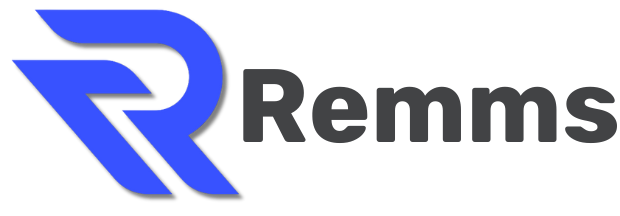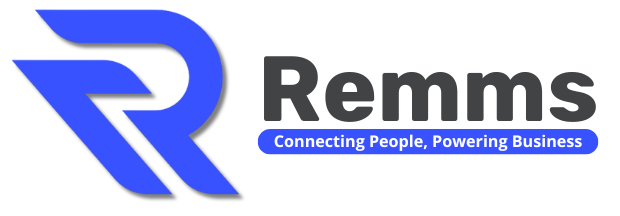
In the fast-paced world of talent acquisition, technology recruitment agencies are leveraging innovative tools to gain a competitive edge. As the landscape of hiring continues to evolve, these modern agencies are using cutting-edge methodologies to streamline their processes, reach a broader pool of candidates, and enhance the overall recruitment experience.
From talent sourcing to onboarding, technology plays a pivotal role in making recruitment more efficient, effective, and user-friendly. This article delves into the various ways technology recruitment agencies are reshaping the hiring landscape today.
Redefining Talent Sourcing and Job Posting
The advent of online job boards and social media platforms has revolutionized the way recruitment agencies source talent. In the past, recruiters relied heavily on traditional methods such as newspaper ads or job fairs.
However, platforms like LinkedIn, Glassdoor, and specialized job portals have made it infinitely easier to connect with potential candidates. Recruiters can tap into wider networks that include not just active job seekers but also passive candidates who may not be actively looking but are open to new opportunities.
These platforms provide features such as targeted ads that leverage search engine optimization (SEO) capabilities, allowing recruitment agencies to enhance their visibility within specific talent markets.
This strategic approach enables them to reach candidates who fit specific skill sets and experiences, thus ensuring a better match between employers and potential hires. The result is a more diversified candidate pool and a greater chance of finding the right talent for each unique job opening.
The Rise of Applicant Tracking Systems (ATS)
Applicant Tracking Systems (ATS) have become an indispensable tool for recruitment agencies looking to streamline their hiring processes. An ATS allows agencies to collect, track, and manage resumes in a systematic manner. By automating tasks such as resume screening and candidate management, an ATS helps recruiters to quickly identify the most qualified candidates.
One of the most significant advantages of using an ATS is its capability for keyword searches. Recruiters can easily filter applications based on skills, qualifications, and experience, significantly reducing the time it takes to sort through hundreds or thousands of resumes. Moreover, ATS software often integrates with other HR tools, providing a seamless experience that enhances operational efficiency and reduces manual workload—making it an essential asset for technology recruitment agencies.
Leveraging Data Analytics and Artificial Intelligence
Data analytics and artificial intelligence (AI) are game-changers in the recruitment landscape. Modern recruitment agencies utilize data analytics to gain insights into hiring trends, candidate behaviors, and various performance metrics. This information acts as a compass, guiding agencies in refining their recruitment strategies and making data-driven decisions.
AI is particularly impactful in automating labor-intensive tasks. From screening resumes to matching candidates with job descriptions, AI-driven tools help identify top talent more efficiently.
Additionally, AI can predict candidate success by analyzing historical data and performance metrics, thereby reducing bias in the selection process. The net effect is not only a more streamlined recruitment operation but also an increase in the quality of hires.
🔗 Read article: Understanding the Hiring Process
Video Interviewing: Bridging Geographic Gaps
As remote work gains prevalence, video interviewing tools have become an essential component of the modern recruitment toolkit. These platforms enable recruiters to conduct interviews across different time zones and locations, effectively broadening the talent search.
Features such as pre-recorded interviews and automated scheduling simplify logistics, making it possible for both recruiters and candidates to participate in the interview process without the constraints of location or scheduling conflicts.
Moreover, advanced AI-driven analysis tools can evaluate candidates’ responses and even body language, offering insights that go beyond traditional interview techniques. In a globalized world, the ability to conduct remote interviews not only saves time but also expands the candidate pool significantly.
Enhancing Employer Branding and Recruitment Marketing
In a competitive job market, employer branding has gained newfound importance, and technology plays a crucial role in shaping it.
Recruitment agencies can harness various digital marketing strategies, including social media engagements, content marketing, and targeted advertising, to craft appealing narratives around organizations and their workplace culture. By presenting a robust employer brand, agencies can attract more qualified candidates who resonate with the organization’s values.
Emerging technologies, such as Virtual Reality (VR), enhance this experience by providing immersive insights into the workplace environment.
Candidates can engage in virtual office tours or experience a day in the life of an employee, making the organization more attractive. This kind of innovative approach not only attracts talent but also helps in retaining employees who fit well within the company culture.
The Importance of Candidate Relationship Management (CRM)
Maintaining strong relationships with candidates is essential for recruitment agencies. This is where Candidate Relationship Management (CRM) systems come into play.
CRMs help agencies manage communications, track interactions, and provide a seamless experience throughout the recruitment lifecycle. By fostering genuine relationships with candidates, agencies can create a more personalized interaction that goes beyond a mere transactional approach.
A robust CRM system allows recruiters to follow up with candidates systematically, ensuring they feel valued and engaged throughout their job search journey.
As candidates move through the recruitment process, continuous nurturing helps establish a talent pipeline, making it easier for recruiters to match candidates with future job openings.
Streamlining Onboarding with Technology
The onboarding process has also been transformed thanks to technology. Comprehensive onboarding platforms now facilitate remote onboarding, integrating features such as document management, virtual orientations, and training modules. This ensures that new hires experience a smooth transition into their roles, even if they never set foot in a physical office.
Through virtual platforms, agencies can provide new employees with access to necessary resources, engage them in training modules to get them up to speed, and allow them to complete essential paperwork seamlessly.
By automating these processes, recruitment agencies can significantly reduce the time and effort associated with onboarding, leading to higher job satisfaction among new hires.
Embracing Mobile Recruitment
Today’s candidates are increasingly reliant on their smartphones, prompting recruitment agencies to adapt their strategies for mobile recruitment.
By offering mobile-friendly applications, agencies can significantly simplify the job search and application process for candidates. This adaptability not only enhances the candidate experience but also improves response rates and engagement levels.
With mobile apps, candidates can search for opportunities, submit applications, and communicate with recruiters—all from the convenience of their smartphones.
By meeting candidates where they are, agencies demonstrate a commitment to user-friendly processes that align with contemporary lifestyles.
Conclusion: The Future of Recruitment in a Tech-Driven Landscape
In conclusion, technology is transforming modern recruitment agencies, enhancing efficiency, improving candidate experiences, and enabling data-driven decision-making.
As the industry continues to evolve, it is crucial for recruitment agencies to embrace these technological advancements and adapt to new tools and trends. This adaptability will not only help them operate more efficiently but also create a sophisticated and responsive recruitment process that benefits both candidates and employers alike.
The future of recruitment lies in the perfect blend of technology and human touch, where agencies can leverage data and tools without losing the personal connections that make the hiring process meaningful.
By adopting a tech-savvy approach, modern recruitment agencies can remain competitive in an ever-changing talent acquisition landscape, ensuring they are well-equipped to navigate the challenges and opportunities that lie ahead.

